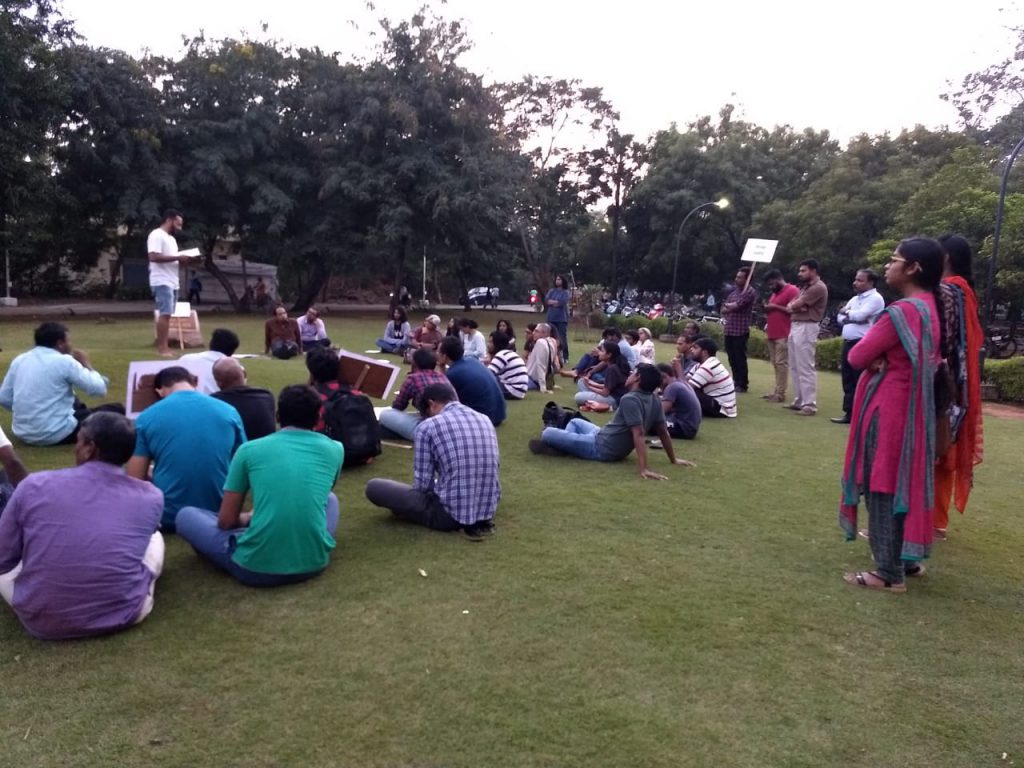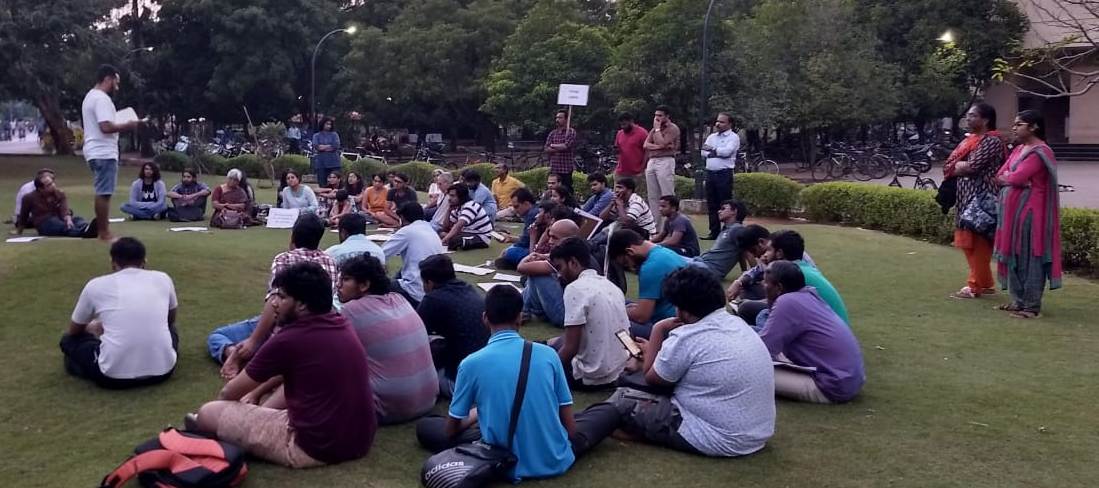On 14th January, the Supreme Court rejected an appeal to quash the false FIR filed by the Pune police against eminent scholar and public intellectual Anand Teltumbde. The FIR was filed as a result of the events of Bhima-Koregaon that took place last year. This was done under the Unlawful Activities [Prevention] Act (UAPA), a highly controversial legal provision which is oftentimes called unconstitutional.
Ambedkar-Periyar Study Circle (APSC), a student’s collective at IIT Madras, staged a protest against the imminent arrest of Anand Teltumbde – in other words, the State-sanctioned curbing of free speech.
The Bhima-Koregaon Violence
The Battle of Bhima-Koregaon has historically been a bone of contention between Dalits and Hindus. It refers to the 1818 battle fought at Koregaon in Maharashtra between the East India Company whose troops consisted of several soldiers belonging to the Dalit caste of Mahar, and the Peshwa faction of the Maratha Confederacy. It resulted in the defeat of the Marathas.
Although long-forgotten since then, the battle regained prominence in the mid-2010s when groups of Mahar people began to gather at the victory pillar erected by the British at Koregaon, to celebrate what was a victory for them against the centuries of denigrating treatment they had undergone at the hands of the upper-caste Peshwas.
On January 1, 2018 – the 200th anniversary of the battle – hundreds of Dalits and Bahujans gathered at the memorial to celebrate. But the observance was violently interrupted by right-wing groups which started pelting stones. This resulted in further violence and even the death of two men.
The Aftermath
Although Manohar ‘Sambhaji’ Bhide and Milind Ekbote – men with close ties to the Sangh Parivar – were initially investigated and had charges pressed against them under the SC/ST (Prevention of Atrocities) Act, they now roam around freely. They were never even booked under the UAPA, which has drastically worse consequences.
Also read: Why The State Is Responsible For The Violence In Bhima Koregaon
Several activists and public intellectuals, on the other hand, were accused of having Maoist links, inciting the riots and even planning to kill the prime minister. They were branded as ‘Urban Naxals’ and put under house arrest for months. This included Surendra Gadling, Rona Wilson, Shoma Sen, Sudhir Dhawale, Mahesh Raut, Varavara Rao, Sudha Bharadwaj, Arun Ferreira, Gautam Navlakha and Vernon Gonsalves.
Anand Teltumbde’s case has been the latest development in the aftermath of the Bhima-Koregaon violence. He has been given four weeks (almost two of which are already over) to seek pre-arrest bail from a competent court. Failing to aquire this will end up in him getting arrested. Considering the low amounts of evidence at hand, the police’s history of conveniently fabricating proof and the suppressive nature of the UAPA, Anand Teltumbde’s impending arrest is a cause of concern for the whole country.
The Protest at IIT-Madras
Over 50 students and members of the faculty gathered at the Himalayan Lawns of IIT-Madras on January 22 to protest against the SC order. It was a peaceful demonstration and involved a recapitulation of the series of events leading up to the apex court’s rejection of Anand Teltumbde’s appeal for the quashing of the FIR.

Students belonging to the states afflicted by the Naxalite-Maoist insurgency talked about the ground realities of how easily the police brands anyone who raises a voice against the government as a Naxalite and slaps charges against them. Dalit students expressed how upsetting it was to watch Teltumbde, an activist who has spent most of his life fighting for the rights of the oppressed, face such a threat. Several friends of Mr. Teltumbde also conveyed their sorrow and relayed their experiences with him.

Police were stationed near the venue of the protest and they were found filming the whole event. They put their cameras down only after being called out by one of the protesters.

The organisers also talked about the mention of the APSC in the evidence papers against Anand Teltumbde, where he was ‘accused’ of founding the student collective. The students claimed it was an absolute lie and questioned how it could be an ‘accusation’ even if it were true, as starting a student collective is not tantamount to anti-national behaviour.

A student of Loyola college was also present as the protest and brought attention to how prevalent the curbing of free speech in the country actually is. He talked about how right wing groups and the police had been harassing the professor who had organised the Veethi Virushu Vizha. This was a folk art exhibition that was recently under attack from Hindutva groups for a couple of controversial paintings that were displayed.
Also read: 5 Times UAPA Was Used Against Dalit, Bahujan & Adivasi Assertion | #RepealUAPA
The evening ended with one of the students reading two pages from Anand Teltumbde’s book, Republic of Caste.
All photography credits to APSC
About the author(s)
Hamsadhwani is a law student and anti-caste socialist feminist. Abolish the conditions that produce the prison.




